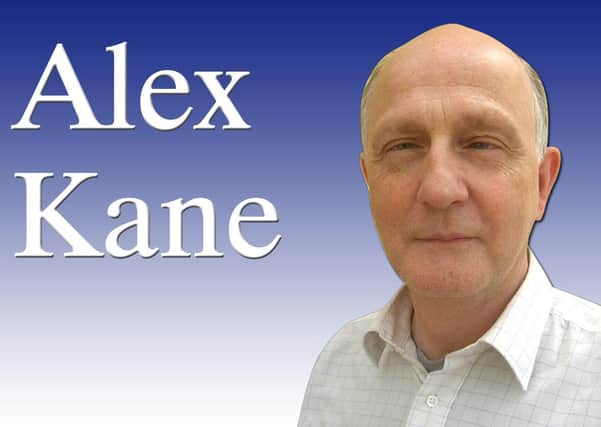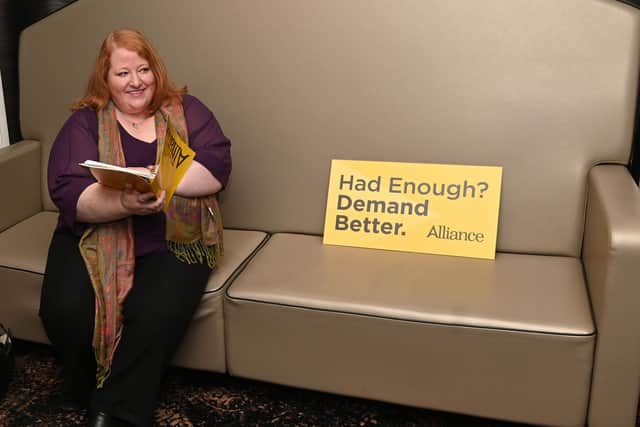Alex Kane: The UUP needs to define the sort of party it really is


Yet the fact remains that unionists, particularly former UUP have shifted to Alliance in significant numbers: so significant, in fact, Alliance outpolled the UUP in the EU and general elections in 2019. So, two questions for the UUP leader: Why have so many UUP voters moved to Alliance; and is it possible to win them back again?
For liberal/moderate unionists it isn’t just about moral issues. It’s also about manifestations of unionism/loyalism which unsettle them: and that’s why they’re uneasy with some of the relationships the UUP has with other unionist/loyalist vehicles. Going to Alliance doesn’t mean they’re any less unionist/pro-Union than they were, it just means they’re uncomfortable with party-political unionism. In a border poll it’s likely most of them would vote to remain in the UK.
Advertisement
Hide AdAdvertisement
Hide AdHere’s my tuppence-worth. If someone seems reasonably well disposed to view the Union as better than the constitutional alternatives then I don’t actually care what that person thinks of abortion, religion, same-sex marriage, homosexuality et al. I don’t care about their gender, race, profession, background or sexual orientation, either. That’s all to do with their personal views and private life and my unionist identity is blind to that.


Unionists come in all shapes and sizes and with a bewildering array of views on a bewildering array of issues. For me it’s about winning people to the constitutional cause rather than making them feel outside the loop. The UUP will never be able to accommodate all of them, but it must be ready to accommodate as many as possible.
That’s why I have a difficulty with a freedom of conscience vote on some moral issues. How, for example, could a unionist in Northern Ireland block legislation on a right which is taken for granted in every other part of the United Kingdom? Indeed, what’s the point of describing yourself as a unionist, or pro-UK, if your votes are being used to deny equality of citizenship? And that applies to some non-moral issues, too.
Here’s another problem: if it’s the case unionists who’ve shifted to Alliance have done so because of their discomfort with the UUP’s links with the DUP, should the UUP rule out any electoral pacts with the DUP; or involvement with any electoral vehicle that might encompass the TUV, PUP and LCC? That would be an extraordinarily difficult decision since, according to a recent UUP survey (The Ulster Unionist Party: Country Before Party, Jon Tonge et al, 2019) 41% of UUP members support pacts with the DUP. Fifteen per cent actually want the parties to merge.
Advertisement
Hide AdAdvertisement
Hide AdWhat if the drift to Alliance is mostly pro-Remain unionists uncomfortable with the UUP falling in behind the DUP in support of Brexit? Would the UUP be better placed to reclaim support if it rowed back on its opposition to the NI Protocol and became stronger in its condemnation of the DUP’s role in delivering the protocol in the first place?
But what if it’s too late to win back the Alliance drifters? Crucially, what happens if the party reinvents itself and another section of its base (who support DUP pacts as and when required) just shift to the DUP? Or, how will the party respond to accusations from other sections of unionism/loyalism that a stand-alone UUP would endanger seats and risk handing the keys of the first minister’s office to Sinn Fein? That’s almost certainly the line Edwin Poots will pursue in the run-up to the next election.
The most difficult question is this: what are the exact and specific differences between the UUP and DUP and how far should the leader go to promote and shore up those differences? In other words, what’s the point of trying to persuade voters you aren’t the same as the DUP if, come almost every election, you reach some sort of electoral arrangement with it?
The UUP dilemma can be summed up in a paraphrasing of F Scott Fitzgerald: ‘a yardstick of first rate confusion in politics is the willingness to hold two opposing ideas in mind at the same time while trying to retain the ability to function’. Or, putting that another way, the UUP cannot continue trying to be both fish and fowl. Is it DUP-lite? Is it Alliance-heavy? Or is it just itself: a party for the Union, open to anyone and everyone who already shares or who could be persuaded to share that belief?
Advertisement
Hide AdAdvertisement
Hide AdThe challenges and pressures on the next leader will be enormous and relentless. If he doesn’t succeed there probably won’t be another chance for another leader, because what’s left of the party will be swallowed up by the DUP. And he will discover, if he doesn’t know it already, the UUP isn’t a single party, but rather a collective of competing parties, pressure groups and factions.
I can’t shake off the feeling that we’re heading towards a one-party future for unionism, in which numbers and survival will eclipse and predominate every other issue. Unless, of course, the UUP finds its feet and what I used to describe as its own role, relevance, purpose and direction. It cannot do that if it continues to have its tail wagged by those whose primary motive is retaining it as little more than the poor electoral cousin of broader unionism.